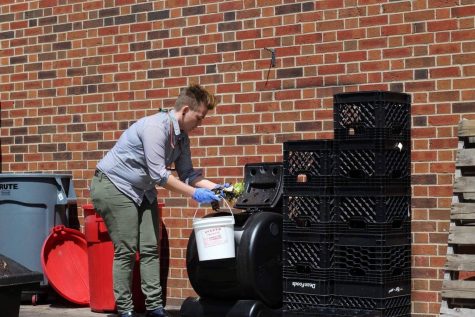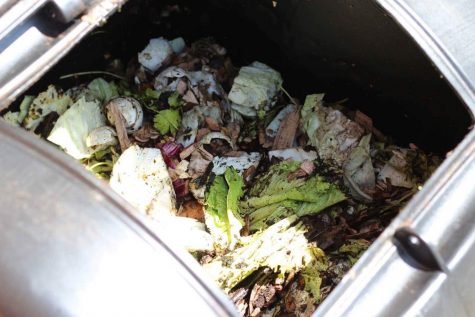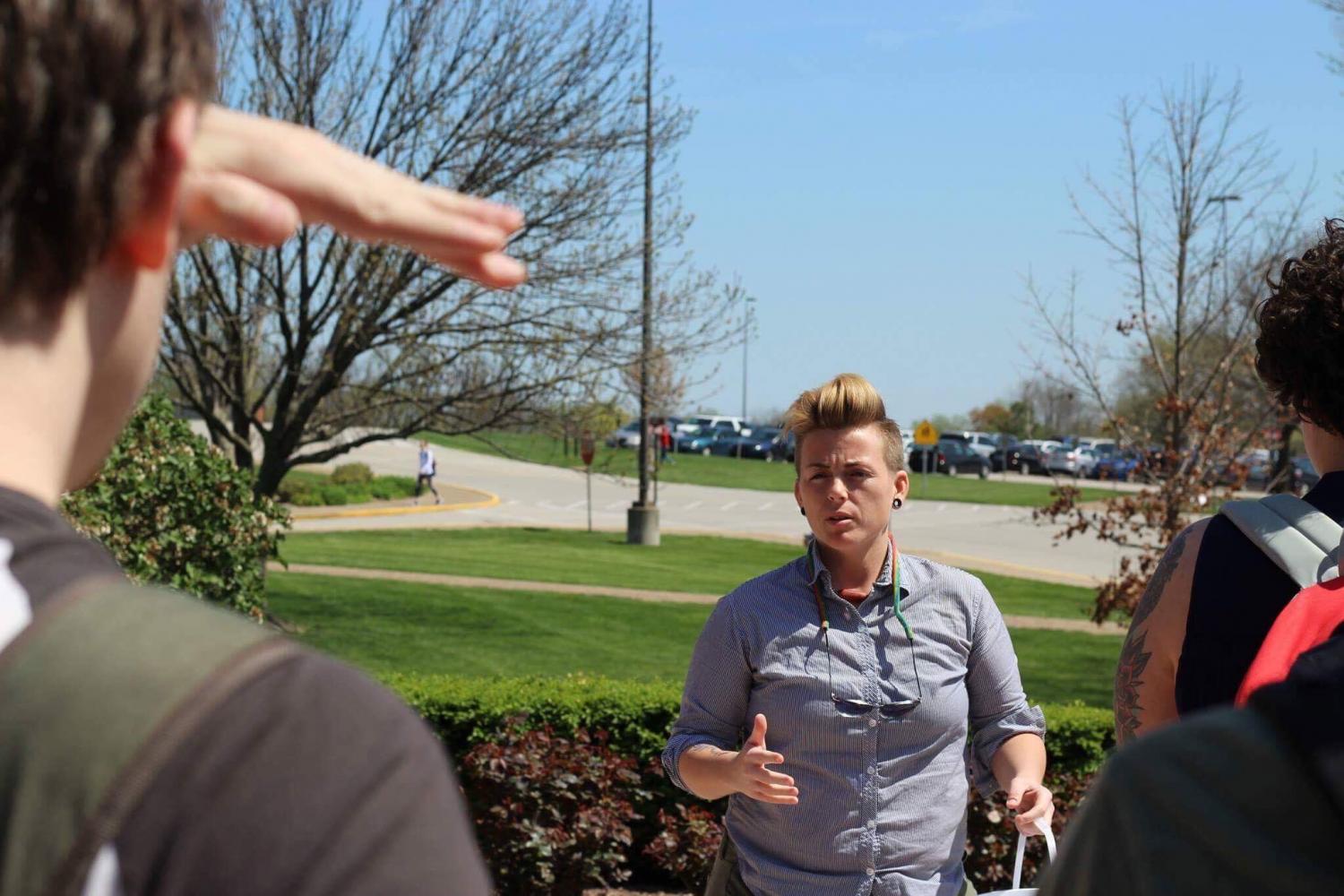Student Club Offers Sustainable Future
Preparing to pass the torch, Frederick rallies her student officers to spread their wings and take over, assuring them the impossibility of eco-friendly campus habits without students.
September 15, 2017
The beauty of IU Southeast is candidly on display for incoming and returning students every semester. With the Knobs in the distance, various assortments of flowers and strung-up hammocks can be seen among trees on the hillside.
To be aware of the beauty of the campus is one thing, but to be actively involved in the preservation of it is a whole other matter. Enter Robin Frederick.

Frederick is the chair of the Ohio Valley Creative Energy Sustainability Council at IU Southeast, and paves the way for the university to promote the preservation of its campus through innovative means. She believes students are essential for the future of the campus and the possibility of the campus becoming sustainable.
“We are looking to create more engagement opportunities for students, such as internships on and off campus,” Frederick said. “We have a sustainability degree program in the works that we hope to have available to students soon, but we currently offer a minor and a certificate.”
Frederick said the importance of student involvement is imperative and influenced her decision to create the Sustainability Club. She said the work the student officers put into the club, such as designing signs to be hung up across campus, setting up club meetings and helping promote events is what makes the club more relevant.
“Each officer’s role has brought so many things to the club that I can’t do alone, such as their time, their creativity and the topics that interest them,” Frederick said.
While Frederick admits that sustainability isn’t yet prominent on campus, a handful of optimistic and like-minded students have answered the call to preserve the campus and learn eco-friendly initiatives, including Brittany Harris.
Harris is the president of the Sustainability Club and the leader of student involvement on campus. Her responsibilities range from ensuring the club meets campus requirements, to allocating power among student officers, or simply club members. Harris said she met Frederick at a Psychology Club meeting in the fall semester of 2016 and immediately wanted to be involved in increasing student participation and taking on a leadership rule.
“It was incredible and inspiring [to see] all that Robin had done for our university and local communities,” Harris said. “I wanted to help our Sustainability Council get the students involved to influence our campus and the community to become more ecologically responsible. It’s [also] not much to tac on the certificate. You learn about the three fundamentals of sustainability, which are: environmental, social and economic. Then, you choose an area to specialize in.”
Harris seized the opportunity to secure the presidency of the first Sustainability Club at IU Southeast. With this new movement on campus, Harris and Frederick began working together to get the club off the ground.

On April 18, the club hosted its largest event of the semester: the Sustainability Fair. The booth-filled, outdoor fair on campus hosted 12 local organizations from Louisville and Southern Indiana in an effort to spread outreach and promote sponsorship opportunities for the Club. Among these organizations was Louisville Ripple, a local non-profit who hosted a “Start a Movement Workshop” on the same day along with Frederick. This aimed to educate students on how to create real change within a community.
The club is working on a composting pilot program in which student officers lead the movement on campus to compost on a regular basis, using tumblers on the left side of the University Center building. Compost is an organic material that has decayed and is used as a fertilizer for plants while reducing waste. Students can add dry wood shavings and/or fruits and vegetables to the tumbler and take their turn churching it to help convert the material.
The awareness of the club and the idea of campus sustainability has been spreading since the clubs conception. The club’s immediate recruitment process has been successful in the eyes of its officers, who have built their audience through an active Instagram account. Peter Hyle is a layperson within the club who believes the benefits of resume building is a complementary factor to his already innate interest in eco-friendly habits. Hyle sees a sky of potential for the club, claiming time is on its side.
“I’m happy to be a member of this club [since] the very first semester it was offered,” Hyle said. “I believe the longer [the club] is available at this university, the more students will benefit from its great effort and overall message.”
As of now, the club meets once monthly on campus in Room University Center 127 south; The meetings are organized by the student officers and lead by Frederick and Harris, while members like Hyle meet to discuss interests and take note of ways to better their role as a student officer. The first meeting of this semester is Sept. 6, 12:30 p.m. to 1 p.m.
Behind the scenes, when the work beneath the beauty is revealed, the preservation of it is not noticed by the masses. Yet, it finds silver lining in The Knobs, in the flowers and in the hammocks among trees on the hillside.


